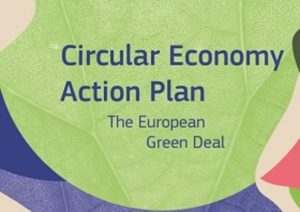Trying to return to a normal life, even during this health crisis that has hit the whole world, household appliances industry returns to underline the importance of follow all measures to reach a circular economy. This is particularly underlined by Zvei, the German Association of Electrical and Electronic Manufacturers, that affirms that “striving for a circular economy is rightly at the top of the political agenda. However, a one-dimensional approach should be avoided: a competitive Europe is not solely dependent on formulating environmental objectives. The upcoming transformation will only be truly “sustainable” if its implementation strikes a balance between competitiveness, environmental and climate protection and social responsibility.” 
So what we need is a cross-cutting and interdisciplinary approach, with a constant dialogue among all actors along the value chains.
“Considering the background of many years of experience with the implementation of sustainability-related requirements – Zvei explains in a press release – the electrical industry is willing to make a constructive and goal-oriented contribution to a sustainable competitive Europe and thus a sustainable circular economy. Our member companies are suppliers of innovative, energy and resource-saving product solutions that already contribute to the realisation of the circular economy in their field of application. Electrical products, that have reached the end of their life, we don’t see as waste, but as a recyclable source of resources.”
But Zvei also defines some guidelines with a paper providing a first assessment of the most important discussion points from the perspective of the manufacturers of electrical products. These are for instance: product requirements must always be considered product-specific and carefully checked; maintain RoHS as a separate law and apply a risk-based approach for regulating substances and product groups; regulate batteries exclusively within the Batteries directive; no mandatory use of recycled plastics without prior development of product-specific standards for quality criteria; no new data(bases) – first of all, existing data(bases) must be designed in a practical manner; regulate exports of waste – strengthen enforcement and the internal market; exploiting the opportunities of digitalisation – expanding synergies with Circular Economy; maintaining the competitiveness of European products on the world market; identical transposition of European legislation on the level of member states; better enforcement of laws.



